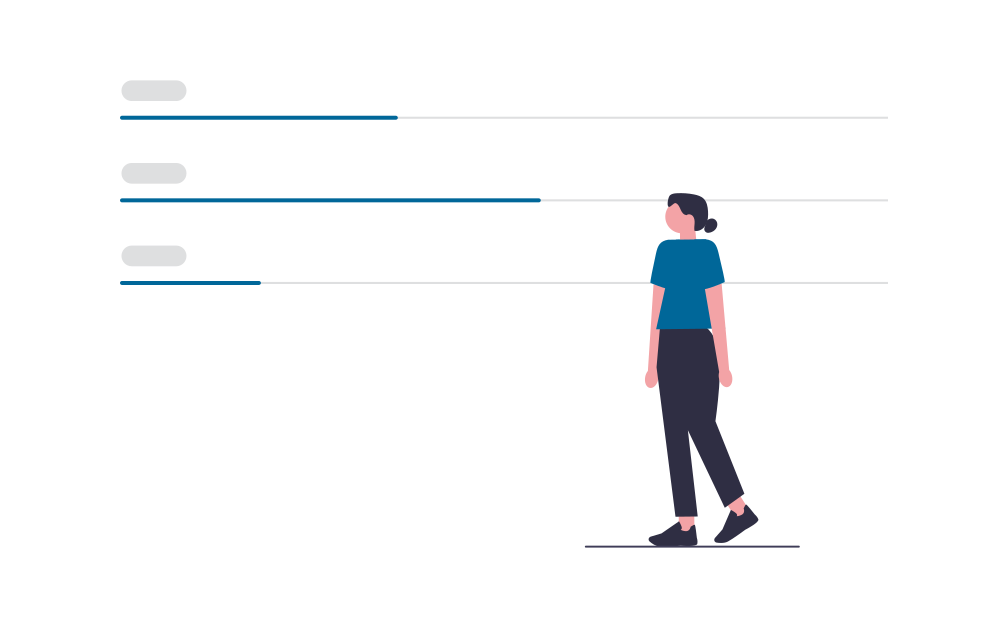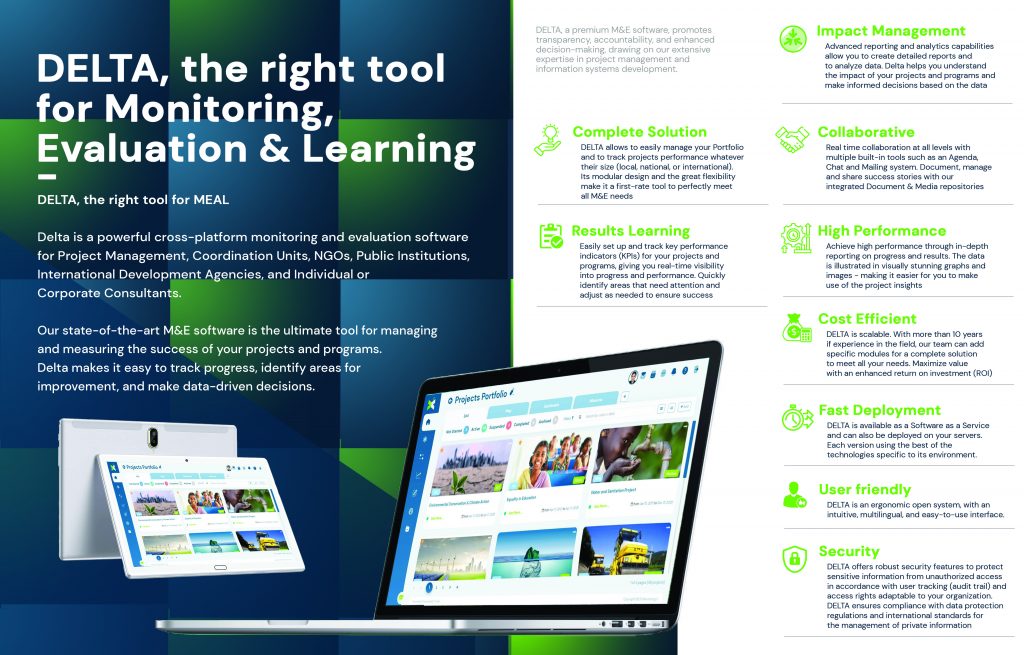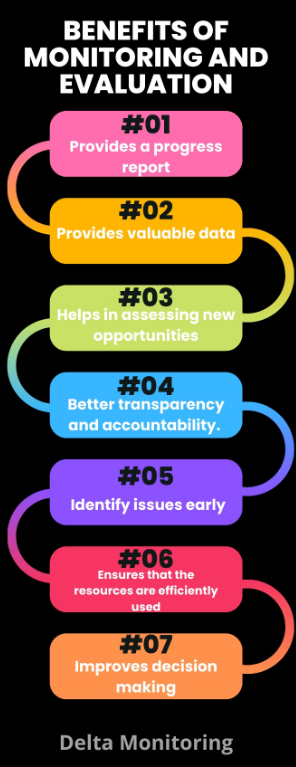
Top 7 Benefits of Monitoring & Evaluation
Effective monitoring and evaluation play a crucial role in the success of social development projects and programs. It is imperative to establish a comprehensive monitoring and evaluation plan at each phase of your initiative in order to attain the desired outcomes. This systematic approach enables the collection and analysis of valuable data.
Analyzing the gathered data allows for an understanding of whether a project or program is progressing according to the intended trajectory. Additionally, it facilitates the identification of early-stage challenges or deficiencies. By promptly addressing these issues, the smooth execution of the remaining plan can be ensured.
Therefore, the significance of a monitoring and evaluation plan is apparent. Continue reading to gain further insights on this matter.
What is Monitoring and Evaluation, and why is it essential?
Monitoring and evaluation (M&E) is a crucial management procedure that greatly contributes to the success of a development project or program. It serves as a valuable tool in assessing cost-effectiveness and resource utilization. By implementing effective monitoring and evaluation practices, you can gain insights into the following key aspects:
- Adherence to planned trajectory.
- Return on investment (ROI).
- Overall benefits and impact.
- Achievement of predefined objectives and goals.
Understanding these factors is vital for achieving success. Furthermore, a well-designed monitoring and evaluation plan offer numerous advantages, some of which are elaborated below:

Top 7 Benefits of Monitoring & Evaluation
1. Gather and provide valuable data
During the monitoring and evaluation (M&E) process, a significant amount of valuable data is gathered. This data holds immense importance for a wide range of entities, including development agencies, NGOs, government agencies, private sector companies, and educational institutions. It not only provides insights for the specific project or program under evaluation but also informs future projects.
One of the key components of evidence-based decision making is utilizing the compiled M&E data to determine the cost-effectiveness and resource utilization of a project or program. By analyzing this data, organizations can assess whether the initiative justifies the investment of funds and resources.
Moreover, leveraging M&E data aids in continuous improvement. It enables organizations to identify strengths and weaknesses throughout the project cycle, allowing them to make informed adjustments and enhance future endeavors. This practice not only enhances outcomes but also safeguards valuable resources by mitigating unnecessary expenses.
Therefore, it is imperative to ensure accurate and comprehensive data collection during the M&E process to harness its potential in supporting evidence-based decision making and driving effective management.
2. Provides a detailed progress report
An integral aspect of any project or program is to ensure stakeholder confidence through regular progress updates. By implementing an effective monitoring and evaluation plan, you can readily keep stakeholders informed about the advancements being achieved. This proactive communication not only fosters transparency but also creates opportunities for potential funding from stakeholders. Moreover, the progress report derived from the M&E process serves as a valuable tool in preventing resource wastage and optimizing resource allocation.
There are many other comprehensive features offered by Delta monitoring. By making use of these features, you can enjoy a wide range of advantages when it comes to your monitoring and evaluation.

3. Improved Planning and Forecasting
By leveraging the capabilities of an intelligent M&E tool, such as Delta Monitoring, you can access valuable data for identifying and capitalizing on new opportunities. This advanced monitoring and evaluation tool offers innovative features that elevate the effectiveness of your M&E.
Through the comprehensive data collection, both qualitative and quantitative, during the M&E process, you gain insights that enable you to swiftly identify emerging opportunities. This wealth of data enhances your learning and understanding, allowing you to spot potential areas for growth and development.
Utilizing Delta Monitoring not only enhances your M&E practices but also empowers you to stay ahead by proactively recognizing new opportunities that may arise. With this tool, you can harness valuable data-driven insights to drive your organization forward.
4. Improved transparency and accountability
The integration of monitoring and evaluation practices fosters a culture of heightened transparency and accountability within organizations. Through diligent tracking and thorough analysis during the M&E process, companies ensure that pertinent information is readily available to stakeholders. This transparency guarantees that stakeholders are kept well-informed about the progress of projects and programs.
This increased transparency serves as a catalyst for enhanced accountability. By providing stakeholders with comprehensive updates and data on performance, organizations create an environment where they can be held responsible for their actions and outcomes.
The combination of improved transparency and accountability resulting from effective M&E practices empowers organizations to foster trust, cultivate robust relationships with stakeholders, and ultimately achieve successful outcomes.
5. Timely identification of problems
An efficient and well-structured monitoring and evaluation plan is indispensable in identifying issues or shortcomings early in the project lifecycle.
For instance, if a specific project activity consistently falls behind schedule, ongoing monitoring will bring this to light, enabling the organization to investigate the root causes and take timely corrective measures. Likewise, if evaluation reveals that a project is not achieving its intended outcomes, the organization can analyze the reasons behind it and make necessary adjustments to its strategies.
By facilitating early problem detection, monitoring and evaluation not only saves organizations valuable time, resources, and effort but also enhances the overall effectiveness and impact of their work.
6. Effective Resource Utilization
The role of M&E professional involves a careful balancing act between ensuring operational excellence and managing limited resources.
By offering data on the efficiency and effectiveness of activities, monitoring and evaluation highlights areas where resources could be reallocated more efficiently, potentially optimizing time and financial investments while boosting impact.
M&E also aids in realistic budgeting for future projects, strengthens advocacy for resource needs, and ensures alignment of resource use with organizational objectives.
7. Enhanced decision-making
Traditional decision-making often relies heavily on intuition or past experiences, which can sometimes lead to biased or suboptimal choices. M&E, on the other hand, champions evidence-based decision-making, a method proven to be more reliable and effective.
By systematically collecting and analyzing data on the operations and outputs of a project or program, monitoring and evaluation provides a comprehensive and factual understanding of performance. This valuable information serves as the foundation for decisions regarding future direction and strategy.
It not only contributes to the success of individual projects and programs but also strengthens the overall effectiveness and sustainability of the organization.
Conclusion
In conclusion, the implementation of effective monitoring and evaluation practices brings numerous benefits to organizations.
M&E enables the early detection of issues, ensuring prompt resolution and the smooth progress of projects. It also facilitates accurate resource allocation, preventing wastage and optimizing efficiency.
Additionally, M&E enhances transparency, accountability, and stakeholder confidence by providing regular progress reports and involving stakeholders in the decision-making process.
Hence, it is vital for companies, NGOs, social development leaders, etc., to create an efficient M&E plan to enhance their performance, achieve better outcomes, and ensure the success and sustainability of their projects and programs.
To make your M&E more effective and seamless, you can use the help of innovative and advanced tools like Delta Monitoring.

RESOURCES
CONTACT
- contact@delta-monitoring.com
- (+1) 514 779 1591


